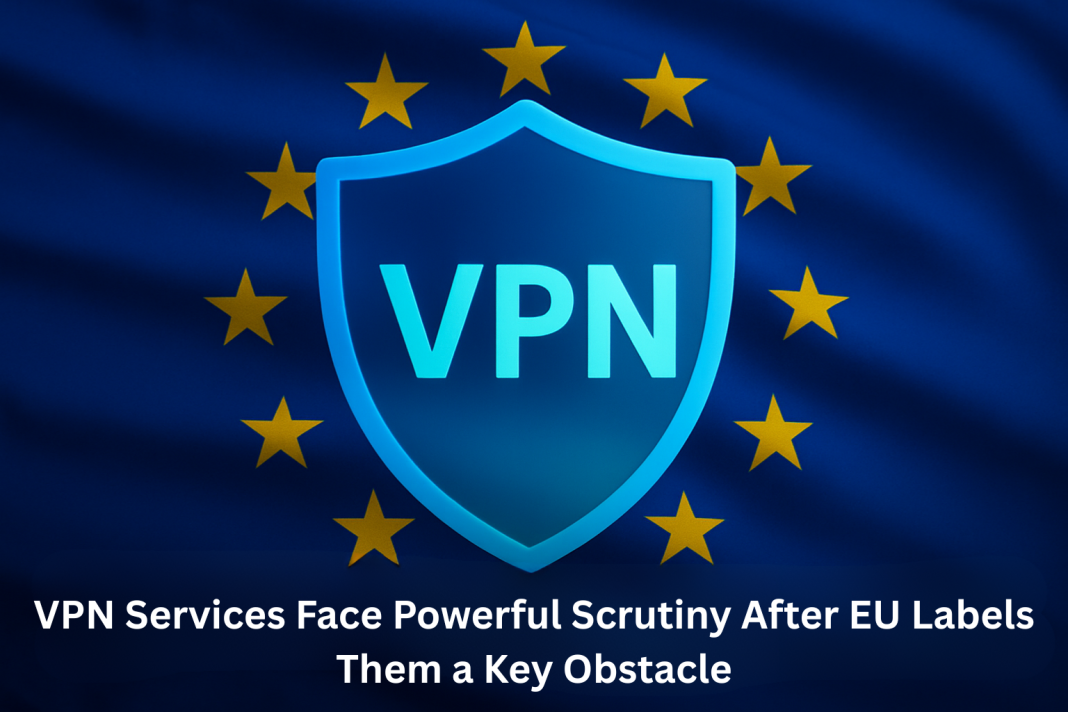A new report by a top expert group in the European Union has brought something surprising to light. For the first time, they’ve clearly listed VPN services as a big problem for police and other law enforcement agencies. These services are now being seen as a “key challenge” when it comes to catching criminals and carrying out investigations.
EU Experts Now Targeting VPNs as Law Enforcement Struggles
Until now, most attention was on encrypted apps like secure messaging services and protected email tools. These tools scramble messages so no one else can read them, even if they’re caught in the middle. That makes it very hard—sometimes impossible—for police to understand what people are saying if they’re using such apps.
But now, experts are turning their focus to something even more common—VPNs. These tools are used by many people to hide their online activity. A VPN (Virtual Private Network) works like a secret tunnel that hides where you are and what websites you visit. That means when someone uses a VPN, it becomes much harder for police to see their digital footprints.
In their final report dated March 13, 2025, this expert group—called the High-Level Group—explained that VPNs, like encryption, are making police investigations more difficult. They mentioned that these tools can stop them from identifying suspects, tracking messages, or knowing where someone is connecting from.
Greenland Strikes White Gold! $Billion Anorthosite Mine Goes to Euro Backers Snubbing US
Lawful Data Access: A Plan to Monitor Devices All the Time
This group was set up by the EU Council back in June 2023. Their job was to come up with a plan to help police get access to digital data more easily. They called this plan “lawful data access by design.” That means they want all digital tools and devices to be made in a way that allows legal authorities to see what’s happening on them—if needed—by law.
Their first suggestions were leaked to the public last year. The main idea was that everyday tech like smartphones, smart speakers, home cameras, and even smart cars should always be watchable by police, if there’s a legal reason.
The latest version of the report shows the same goal, but with clearer wording. Experts are pushing for a system where devices and services are built from the start in a way that allows legal access.
What’s new now is that VPN services are officially being called out as part of the problem. These services don’t show what websites users visit or where they are browsing from. They also often say they don’t keep any records of user activity—these are known as “no-log” VPNs. Because of this, they don’t have much information to give to police even if asked.
Experts believe this is an issue. That’s because even if they can’t read the content of someone’s message, they still want to get what’s called metadata. This includes details like who sent the message, who received it, what time it was sent, and where the user was located. VPNs make this very hard, because they hide or don’t store such information.
Encryption Still a Problem, But Privacy and Security Also Matter
The report also says that encrypted communication is still the biggest technical issue facing law enforcement. Encryption locks up messages so only the sender and receiver can understand them. Not even the app itself can read them.
At the same time, the expert group also admits that encryption is very important. It keeps people’s information safe. It protects us from hackers, cybercriminals, and even spying from other countries.
The report makes it clear that while police need access to data to solve crimes, this should not hurt people’s basic rights or damage cybersecurity. It even says this more than once.
EU Warns Tech Giants: ‘Obey Our Laws or Face the Fire — HQ Location Won’t Save You
The problem is that if authorities try to force companies to leave a “backdoor” or weak spot in encryption, it could be used by anyone—not just police. That’s why many tech experts argue that breaking encryption for one reason means breaking it for everyone.
As part of their suggestions, the experts are also calling for a shared legal system across the EU. They want a set of clear and equal rules on how long service providers should store data. They think this could help law enforcement get at least some useful information, even from services that try not to collect any data at all.
But this idea doesn’t fit well with how many privacy-focused services work. For example, no-log VPNs are built to never record what users do online. If new rules force them to keep some user data, that would go against their very purpose.
This puts the EU in a tight spot. On one side, there is pressure to help law enforcement. On the other side, there’s a need to protect privacy and online security.
The facts in the report show that this is not an easy puzzle to solve. VPNs, once just seen as privacy tools for individuals, are now being viewed as potential roadblocks for justice in the digital age.

